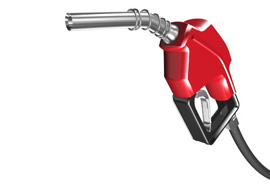
June 15, 2011

I have friends who work in construction jobs which change from month to month. I know elderly persons who live in the country and need to buy groceries or access medical care so they can continue to live independently. More to the point, I know folks with not only children, but limited incomes, for whom $5-a-gallon or higher gasoline would be a crushing economic blow.
If folks in rural areas don’t have vehicles, pesky little things such as energy production, manufacturing, and farming won’t happen. Fine dinners in city restaurants would lack a certain ambiance without food and lighting.
The belief that $5 or higher gasoline will make us drive less, become more efficient, and convert to better fuels is a bitterly new flavor of anti-rural prejudice. The progressive intolerance of, and antipathy toward, rural people and their cultures reaches a new high when it insists we would all be better off if only we drove less. Ultimately, it implies that we should all move closer to the urban beehive or simply deal with our country perversity and stay on the porch out here in the sticks.
I’m not suggesting that the government set or control prices. Government price-fixing in medicine is leaving many seniors without physicians. So if the market drives the prices beyond $5 per gallon, Americans (both rural and urban) will be forced to adapt by driving less or obtaining vehicles with better mileage—if such conveyances are affordable. Hopefully, decreased usage will allow fuel prices to drop as manufacturers sell less gasoline.
For progressives to hope for higher gas prices, especially because of their orthodox belief in the highly questionable topic of climate change, is a reflection of urbanite disdain for those who actually need to drive out in remote “hick” areas where the distances are greater.
If progressives were true to their doctrine of helping the poor and being attentive to diverse groups, they would favor increased domestic drilling and production. They would encourage the use of shale oil, natural gas, and other petroleum products that might actually help lower fuel costs through quantity and competition.
No amount of wishing will make all of our cars stop using gas. Wishing economic hardship on rural America—which would be the inevitable result of escalating fuel costs—smacks of a nasty elitism that is fundamentally un-American.